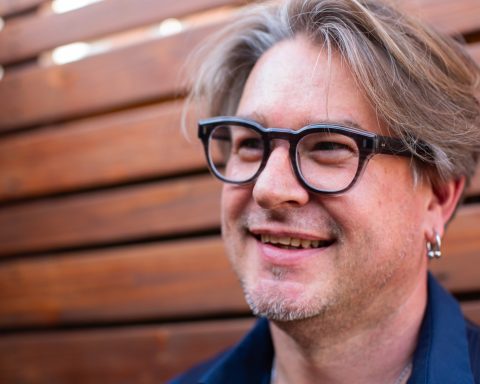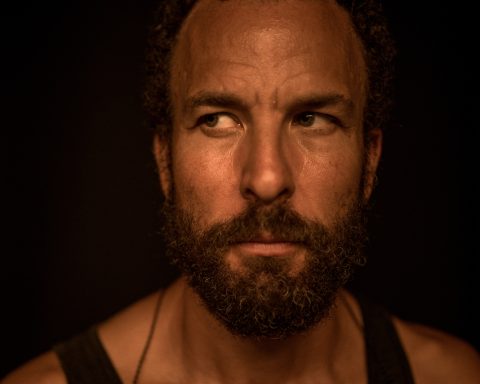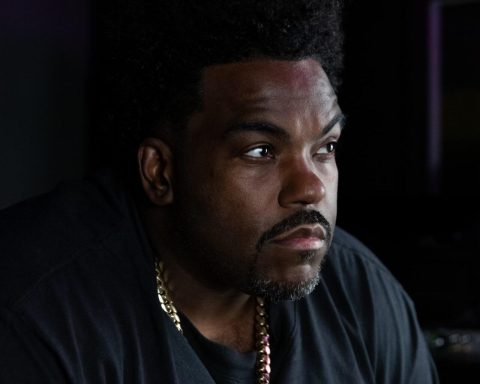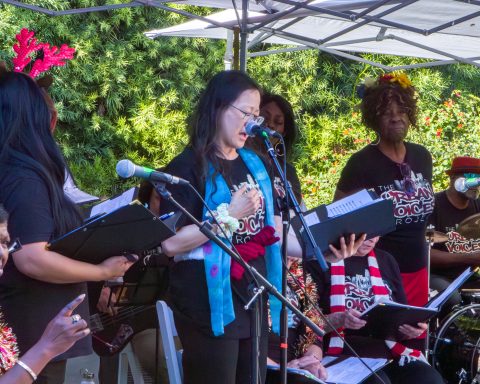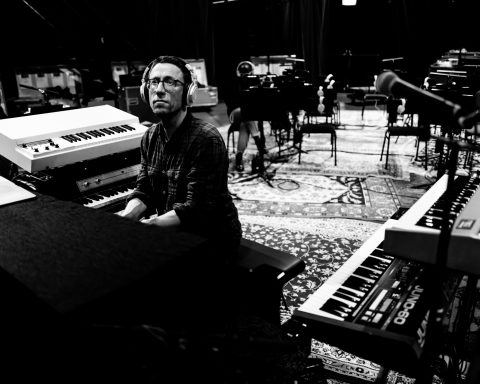Interlocking pieces, the challenge of completion, a difficult situation that requires a solution—puzzles stretch the parameters of our minds. From New York to Copenhagen, Kasper Bjørke has created musical brainteasers as a solo artist and collaborator. Speaking from Denmark, the artist/producer gives us the scoop on evoking the spirit of ’00s NYC, experiencing early success, and whether music is a riddle we can solve.
The Riddle of Change
How has your sound changed between 2007’s In Gumbo and now?
I guess there has always been a specific type of playfulness and hunger for going new places while also refining my sound. Puzzles, my latest album, has a certain vibe throughout, whereas my first albums went in many different directions. I think I’ve become a more focused producer over time in that sense.
I recorded my debut album In Gumbo in New York because I was inspired by the energy of the nightlife in the city and had the ambition to show that I could produce many different styles on one record, which in hindsight, made it a bit too messy. Puzzles uses all live instruments, which gives the whole project a unifying vibe and sound that I’m very pleased with.
Do you consider creating making music a kind of puzzle?
More and more, I do. Because I collaborate with many people and record in different studios, it becomes like a puzzle or layer cake. That first started manifesting during the recording of the ambient / neo-classical project Kasper Bjørke Quartet, where I collaborated with Davide Rossi, an Italian string composer and arranger who works with Coldplay, Goldfrapp, and many others.
Usually, the only thing I’ve let other people do without me being in the room has been recording vocals. But working with Davide Rossi liberated me in the sense that I’ve always felt like I needed to be in control of everything. Davide likes to work alone, so he recorded all the strings for the album in his own studio and sent me the files. Then, I edited and mixed them. Now, I’m much more open to the creative process as a producer. It’s quite freeing.
"I've always felt like I needed to be in control of everything. Now, I'm much more open to the creative process as a producer. It’s freeing."
Sonic Guests
You have a number of guests on Puzzles like Woolfy and Systur aka Sísý Ey. How did these collaborations come about?
Systur is three Icelandic sisters. Ten years ago, I did a song with them called “Apart” under their other project, Sisy Ey, and I reached out to them again. Where Sisy Ey has a more electronic vibe, Systur has a folky sound, but still with their very particular way of doing harmonies and vocal arrangements. They sound amazing together, and they definitely helped shape the sound on Puzzles. Their voices have this melancholic Stevie Nicks vibe.
Then there’s Rasmus Littauer; he’s my go-to drummer. I had done programing, which I normally do on any record. But this time I wanted to replace it all with live drums. I played him each song and then we recorded it in pretty much one take in his studio. I think we had to stop twice during the whole album—like we nailed it in a day. Rasmus is the best!
What Roland instruments did you use while creating Puzzles?
The JUNO-60, SH-101, and D-50 are some of the most-used synths on the album. To me, the D-50—those dreamy pads are like the nicest sounds you can get. The more percussive sounds in there are also amazing. It’s got that Sade vibe.
Hub for Success
What is Copenhagen like as a musical hub?
Because we’re a small town of one million, everybody knows everybody. But that’s also cool. You can reach out to people and ask if they’re up for a session or collaboration. Something that has changed is that it’s much more common for jazz musicians to collaborate with electronic and even indie rock people. I feel it´s much more open now than 20 years ago, in that sense.
You experienced success early in Denmark with Filur. How did that shape your career?
It shaped my career because it gave me so much insight and experience early on about touring and being on labels with big financial muscles. We got to experience a lot of things nobody would get to try now, at least doing the sort of disco house music that we did at that time.
Basically, it felt like the last breath of being on labels with big budgets, at least here in Denmark. It was a fun adventure that lasted around five years. I feel like we were very lucky to start our careers in music in that way, and I’m happy I got to experience all that.
"Going to New York back in the '00s and 2010s to record music and DJ and experiencing that raw, fun music scene definitely inspired and shaped me."
A Raw City
What about early ’00s New York did you want to capture on the new album?
Going to New York back in the ’00s and 2010s to record music and DJ and experiencing that raw, fun music scene definitely inspired and shaped me and what I listen to and love moving forward from that point in time. So I wanted to infuse some of that inspiration while I was producing Puzzles. I guess it’s not something all people can hear. It’s more of a secret love letter to New York and that time in my life.
Describe your composing process. Is there a particular instrument you write on?
Up until Puzzles, my process was usually rhythm-based. This time, I also did the MIDI sample drum patterns but then re-recorded them with Rasmus to get the live feeling. I then co-wrote all the music with my artist friend Toby Ernest. We have collaborated on many songs through the years where he would feature on some of my releases and I have remixed some of his. Toby recently moved from LA to Copenhagen, so we had a couple of sessions around a year ago and played around with chords and ideas—and those songs all ended up on Puzzles.
Ideas, Vision, and Roles
How do you switch between producer and writer roles in the studio or is it all intermingled?
I see myself mainly as a producer, but I can play chords and put a nice chord progression together. But I would say that I spend more time on it than most other musicians. For example, Toby Ernest, it just flows freely and intuitively from him. It speeds up the process and it really becomes great teamwork. I guess I see myself as a solo producer but as a collaborating artist.
I was watching the new Brian Eno documentary, which made me so happy. He’s not a trained musician either, but he has ideas and visions, and he makes them happen, but he doesn’t do it alone. As David Bowie says in the film, “I don’t know what it is Brian does, but it works.”
"I see myself as a solo producer but as a collaborating artist."
Unexpected Experiences
Do your experiences DJing influence your writing and vice versa?
Puzzles is not a DJ album, but I will do some remixes of Puzzles and release them after the summer. It’s interesting to have other people interpret your stuff. I’ve never felt a big joy playing my own tracks, but it feels good to play remixes that other artists have done of my work.
After a long break, I just started doing some international DJ gigs again. I was in Berlin last weekend, and I’m going to Munich, Hamburg, then Amsterdam, London, Reykjavik, and back to Paris and Barcelona in the fall. I used to go to New York to DJ at least twice a year, sometimes Miami and Washington, too. But when I became a dad around nine years ago, I decided to take a long break from flying across the Atlantic. In Europe, I mainly tour by train to lower my carbon footprint as much as possible.
What are some unexpected influences that popped up when creating Puzzles?
Maybe you can’t hear it, but one of my all-time favorite albums from the 2000s was The Whitest Boy Alive, Dreams. There’s a nod to Erlend Oye’s guitar playing and that melancholic, sad-happy disco vibe. I wasn’t aware there was an influence, but afterward, it became obvious to me, “Oh, I guess that snuck its way in there somehow.”
"The fun part for me is to put the album together and make it sound good. Once it's out there, I kind of let it go, and I'm ready for the next project."
Do you have plans to perform this music live?
I’m not a touring musician, so it would have to be a one-off. Even in my early days, when we used to play live, I was always so nervous about all the things that could go wrong. DJing is much simpler—like nothing can really go wrong. But in a live band, there are so many things that can go wrong.
The fun part for me is to put the album together and make it sound good. Then, I finish it and get it out there. Once it’s out there, I kind of let it go, and I’m ready for the next project.



